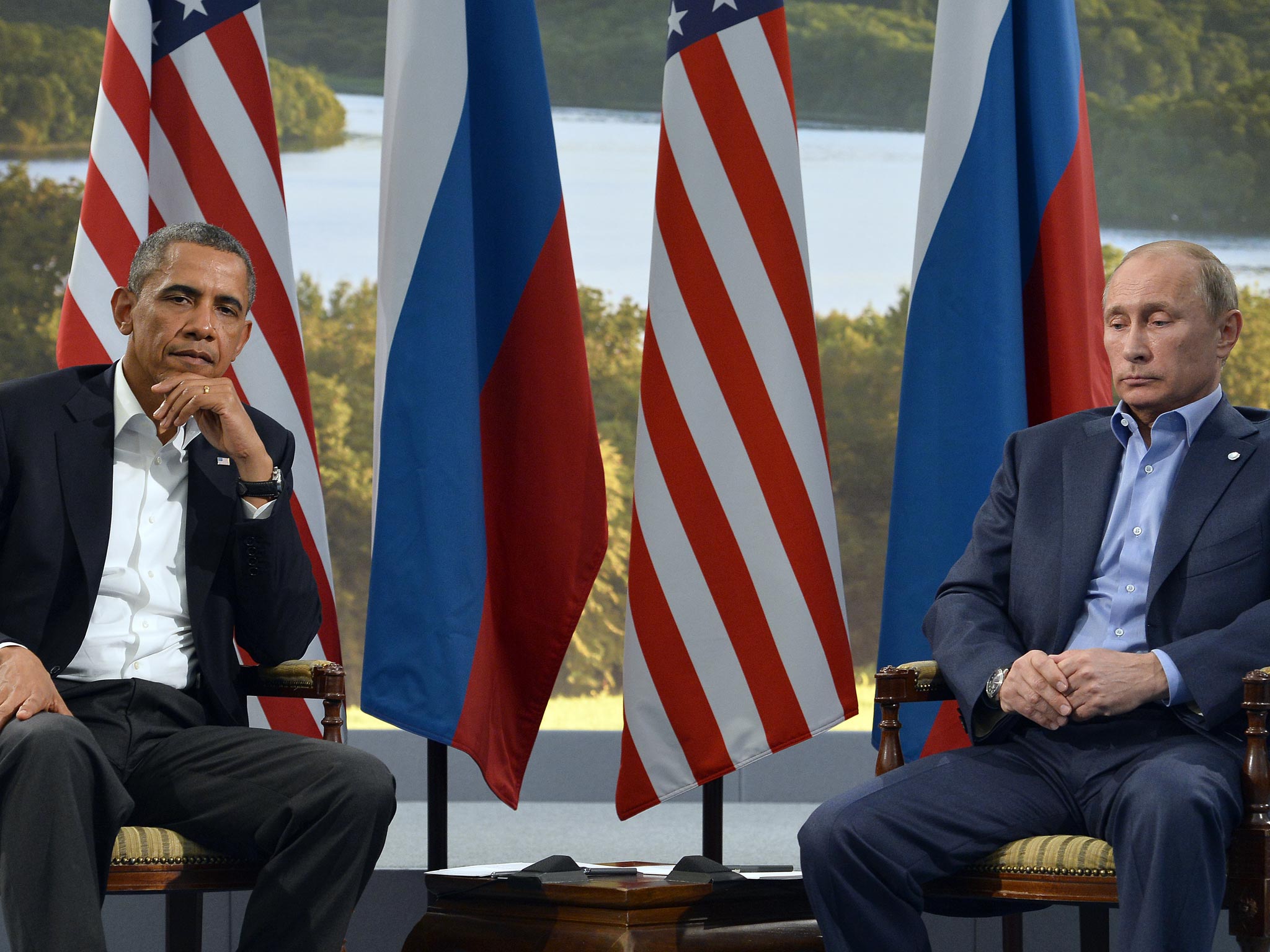Barack Obama warns Vladimir Putin of 'costs' for intervention in Ukraine
Relations between Washington and Moscow already strained

Your support helps us to tell the story
From reproductive rights to climate change to Big Tech, The Independent is on the ground when the story is developing. Whether it's investigating the financials of Elon Musk's pro-Trump PAC or producing our latest documentary, 'The A Word', which shines a light on the American women fighting for reproductive rights, we know how important it is to parse out the facts from the messaging.
At such a critical moment in US history, we need reporters on the ground. Your donation allows us to keep sending journalists to speak to both sides of the story.
The Independent is trusted by Americans across the entire political spectrum. And unlike many other quality news outlets, we choose not to lock Americans out of our reporting and analysis with paywalls. We believe quality journalism should be available to everyone, paid for by those who can afford it.
Your support makes all the difference.President Barack Obama delivered a blunt warning to President Vladimir Putin of Russia on Friday night that “there will be costs” were he to send military forces across the international border into the Crimean peninsula in Ukraine and attempt to intervene directly in the political crisis that continues to convulse the country.
“We are now deeply concerned by reports of military movements taken by the Russian Federation inside of Ukraine,” Mr Obama said making a late afternoon statement in the White House press room in Washington. “Any violation of Ukraine’s sovereignty and territorial integrity would be deeply destabilising.”
Hours before, the Ukrainian ambassador to the United Nations Yuriy A. Sergeyev, told the Security Council in New York that what Washington feared was indeed already happening. He asserted that Russian troops had taken control of two airports in Crimea and that the Russian Navy was blocking the Ukrainian Coast Guard.
After that meeting, the US top envoy to the UN Samantha Power delivered a similarly plain-spoken message to Moscow. “The United States calls upon Russia to pull back the military forces that are being built up in the region, to stand down and to allow the Ukrainian people the opportunity to pursue their own government, create their own destiny, and to do so freely without intimidation or fear,” she said, speaking shortly before Mr Obama.
The statements reflecting deepening anxiety in Washington over Russia’s possible intentions as the new interim government attempts in Kiev to exert authority at the same time as pro-Russian sentiments flare on the Crimean peninsula. Relations between Washington and Moscow have already been strained for months suggesting that any direct confrontation between the two over Ukraine and its future integrity might be very difficult to handle.
As he left the White House to attend a Democrat Party fundraising event in a nearby hotel, Mr Obama was met by a heckler. “Tell us about your plan for nuclear war with Russia!” he shouted. “What the heck are you talking about?” Mr Obama replied. “I don’t know anything about that plan. I don’t know what you’ve been reading.”
Mr Obama suggested channels of communication with Russia were open noting he had spoken by telephone with Mr Putin for an hour last week about the Ukraine. Yet trust between them is clearly low. Intervention, military or political intervention, he said, would “invite the condemnation of nations around the world, and the United States will stand with the international community in affirming that there will be costs from any violation.”
It isn’t clear what Mr Obama has in mind for the “costs” that Russia might pay if it ignores America’s admonitions. Officials indicated that they could include a boycott by the US president of a planned G8 summit set for Sochi this June and a suspension of trade talks with Moscow. No one could say whether they thought the Kremlin would worry much about such threats.
Join our commenting forum
Join thought-provoking conversations, follow other Independent readers and see their replies
Comments